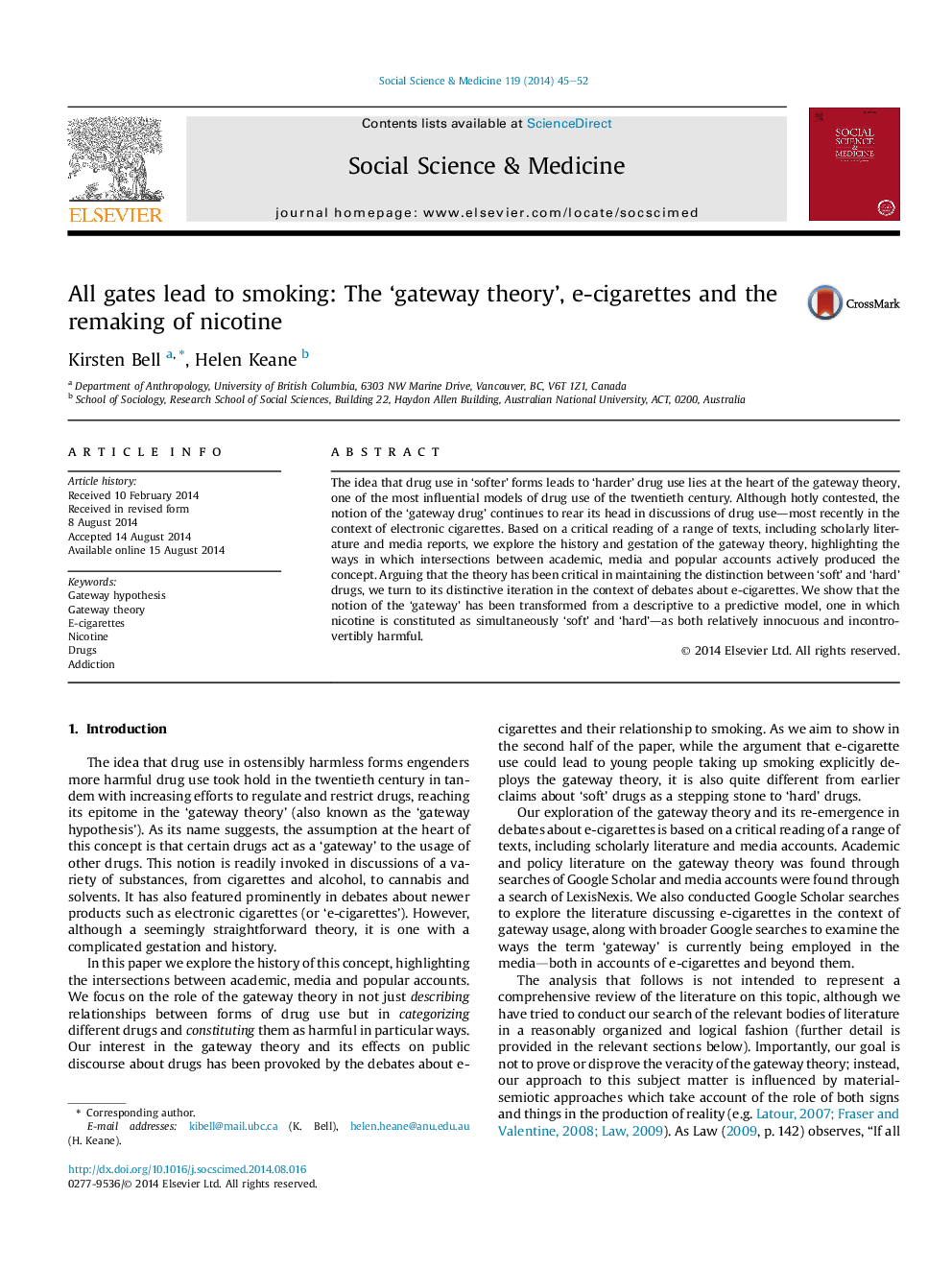| Article ID | Journal | Published Year | Pages | File Type |
|---|---|---|---|---|
| 7334407 | Social Science & Medicine | 2014 | 8 Pages |
Abstract
The idea that drug use in 'softer' forms leads to 'harder' drug use lies at the heart of the gateway theory, one of the most influential models of drug use of the twentieth century. Although hotly contested, the notion of the 'gateway drug' continues to rear its head in discussions of drug use-most recently in the context of electronic cigarettes. Based on a critical reading of a range of texts, including scholarly literature and media reports, we explore the history and gestation of the gateway theory, highlighting the ways in which intersections between academic, media and popular accounts actively produced the concept. Arguing that the theory has been critical in maintaining the distinction between 'soft' and 'hard' drugs, we turn to its distinctive iteration in the context of debates about e-cigarettes. We show that the notion of the 'gateway' has been transformed from a descriptive to a predictive model, one in which nicotine is constituted as simultaneously 'soft' and 'hard'-as both relatively innocuous and incontrovertibly harmful.
Related Topics
Health Sciences
Medicine and Dentistry
Public Health and Health Policy
Authors
Kirsten Bell, Helen Keane,
